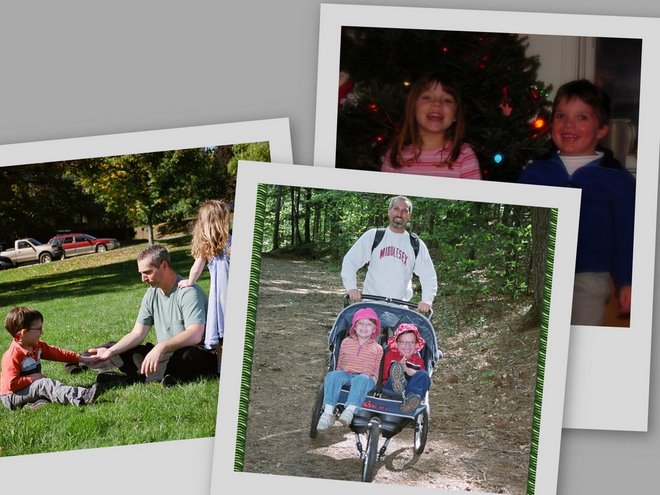
Monday, March 16, 2009
Beautiful
So funny, now that I am writing, I also am feeling like I have something worth posting...
Your Opinions are the Problem
Nan-in, a Japanese master during the Meiji era (1868-1912), received a university professor who came to inquire about Zen.
Nan-in served tea. He poured his visitor’s cup full, and then kept on pouring.
The professor watched the overflow until he could no longer restrain himself. “It is overfull. No more will go in!”
“Like this cup,” Nan-in said, “you are full of your own opinions and speculations. How can I show you Zen unless you first empty your cup?”
–From Zen Flesh, Zen Bones, compiled by Paul Reps and Nyogen Senzaki (Tuttle)
Applies to life...as my dear Aunti-Anne commented this morning.
Sunday, March 15, 2009
Facing Facebook as an inevitable, though uninvited conduit to the past.
For those new to facebook or still resisting, the New York Times, The Way We Live Now offers some food for thought today:
from Growing Up On Facebook By PEGGY ORENSTEIN
I also find that some of my past friends are connected not only to my past self but also to my past ways of thinking, some of which I miss. When two of my former Summerbridge student volunteers (one of whom is now a Professor at Columbia) recently contacted me, I found that their ideas and ways of talking brought forward memories and connections I had not had in a dozen years. So I feel a more whole self as a result, connecting to places in my brain that had been inaccessible without these "friends'" voices and thoughts. I am not sure that we are all that much more healthy for burying the past. Why not face it, and why not let "face"-book be the facilitator of that?
from Growing Up On Facebook By PEGGY ORENSTEIN
[Remarking on the strangeness of her nieces going off to college while still being ultra connected to home and former school mates through Facebook and contrasting that to her experience decades ago:] ...Certainly, I kept in touch with a few true old friends, but no one else — thank goodness! — witnessed the many and spectacular metaphoric pratfalls I took on the way to figuring out what and whom I wanted to be. Even now, time bends when I open Facebook: it’s as if I’m simultaneously a journalist/wife/mother in Berkeley and the goofy girl I left behind in Minneapolis. Could I have become the former if I had remained perpetually tethered to the latter?...On the other hand, for those of us--like me--who may be politico wannabes, it is helpful to have the past all aired out NOW, before the exploratory committee is even formed!
...something is drowned in that virtual coffee cup [of constant connectivity to friends of our past] — an opportunity for insight, for growth through loneliness. ... Maybe the Greek chorus of preschool buddies will be more anchor than albatross, giving them strength to take risks or to stick out tough times. It could be that my generation was the anomalous one, that Facebook marks a return to the time when people remained embedded in their communities for life, with connections that ran deep, peers who reined them in if they strayed too far from the norm, parents who expected them to live at home until marriage (adult children are already reclaiming their childhood rooms in droves). More likely, though, the very thing that attracts us oldsters to Facebook — the lure of auld lang syne — will be its undoing. Kids, who will inevitably want to drive a stake into the heart of former lives, may simply abandon the service (remember Friendster?) and find something new: something still unformed, yet to be invented — much like themselves.
I also find that some of my past friends are connected not only to my past self but also to my past ways of thinking, some of which I miss. When two of my former Summerbridge student volunteers (one of whom is now a Professor at Columbia) recently contacted me, I found that their ideas and ways of talking brought forward memories and connections I had not had in a dozen years. So I feel a more whole self as a result, connecting to places in my brain that had been inaccessible without these "friends'" voices and thoughts. I am not sure that we are all that much more healthy for burying the past. Why not face it, and why not let "face"-book be the facilitator of that?
Subscribe to:
Comments (Atom)
 Click the link to hear!
Click the link to hear!